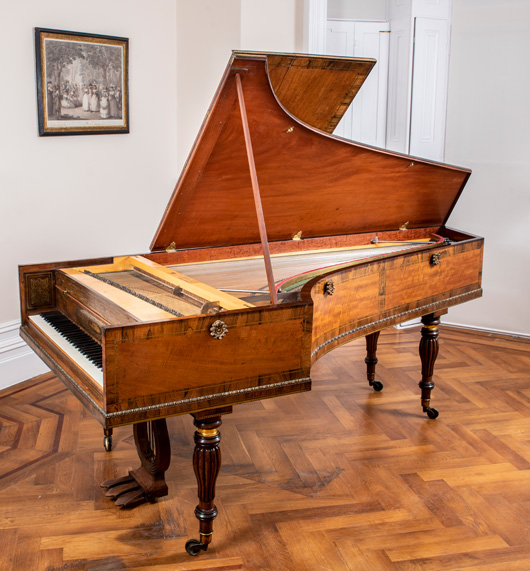Grand piano by Clementi and Co., London, 1822
Compass: CC - c''''
English grand action.
Pedals for una corda / due corde, ‘Harmonic Swell’ and dampers.
Compass: CC - c''''
English grand action.
Pedals for una corda / due corde, ‘Harmonic Swell’ and dampers.

Built one year into the reign of George IV, the case of this handsome instrument is a fine example of the decorative style associated with his Regency, from which it has duly taken its name. Expensively veneered in rosewood and inlaid with brass, the highly fashionable appearance of this piano is typical of the output of a once internationally renowned firm. Clementi, a pianist and composer whose compositions and commercial enterprise made him a household name during his lifetime, was heralded ‘The Father of The Pianoforte’ when he died in 1832. An arbiter of musical taste, Clementi sought technical innovation with the assistance of the firm’s foremen and designers, the brothers Collard, who produced instruments that were praised throughout Europe. The design and construction of this piano is testament to their accomplishment; a feature such as the ‘Bridge of Reverberation’ that carries the usually muted after-lengths of the strings and which allows them to vibrate sympathetically by means of a pedal-raised damper (the ‘Harmonic Swell’), is particularly advanced for the time and adds considerably to the already rich body of sound produced by the instrument. This, coupled with the very best of English craftsmanship, ensured that Clementi pianos ranked among the highest quality instruments available to purchase. The King himself was a client of the firm, as evidenced by a label inside this piano proudly stating ‘Makers to His Majesty The King.’
When you play, never mind who listens to you
Robert Schumann